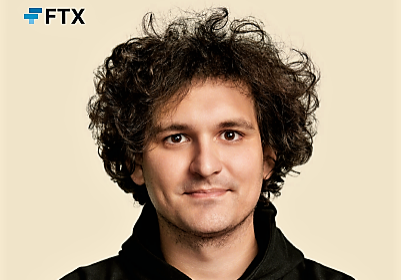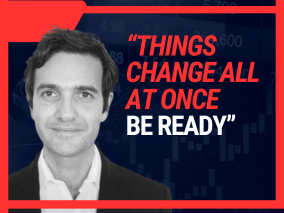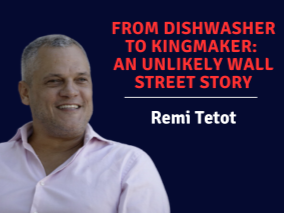If we care about the influence of social networks on our minds, why are we talking about bipedalism and the 8 million year cycle of co-evolution it kicked off?
Because it defined how our young were parented, how we taught them, and what they were exposed to. Because it changed how our symbolic brains evolved.


I saw this work of art on Twitter today, referring to Dropbox management using stock buybacks to sterilize their outrageous stock-based comp, and it made my day.
The Epsilon Theory notes I wrote about stock buybacks in 2019 are the most controversial thing we have ever published. They generated more anger, more arguments and more cold shoulders from the mainstream finance community than anything else we’ve done. Here’s my position:
When stock buybacks are used to sterilize stock-based comp (i.e., a company gives managers stock with one hand and buys it back from them with the other hand), no money is “returned to shareholders”. This is true whether or not management actually sells its shares into the buyback program.
Stock buybacks only “return cash to shareholders” to the degree that the buyback program reduces the sharecount. To the degree the buyback program does not reduce the sharecount, but simply sterilizes new issuance to management, it is purely a transfer of wealth from shareholders to management.
As the kids would say, it’s just math.
I think you would be AMAZED at the proportion of stock buyback programs that go towards sterilizing stock-based comp. I certainly was. I think it’s the greatest transfer of wealth in human history.
Not to founders. Not to entrepreneurs. Not to risk-takers.
Nope … to managers. To asset-gatherers. To fee-takers. To rent-seekers. To rakes.
Yep, Jamie Dimon is the rake. But then so is every S&P 500 management team. So is every Wall Street management team. That I’m aware of, at least. It’s the water in which we swim.
“Yay, Stock Buybacks!”
It’s amazing how many people get very angry at me when I say this.
Anyhoo … in addition to The Rake, here are the notes that started all the fuss.
— Ben Hunt | June 15, 2021 | 4:04 pm
In Epsilon Theory-speak, we use “Yay, Good-Thing!” as shorthand for a Narrative that takes a linguistic construction that we all agree is a Good Thing (something like “capitalism” or “freedom” or “democracy”) and turns it into a behaviorally powerfully argument for something that is decidedly not that Good Thing, but can be painted with other behaviorally powerful words into something that sorta kinda looks like that Good Thing if you squint really hard and you say the behaviorally powerful words loudly enough.
In rhetorical construction, “Yay, Good Thing!” is a variation on begging the question (in the correct way of understanding that phrase, where the conclusion is assumed in the proposition), or if you’re in marketing or sales you would recognize this as a variation of the assumptive close. The typically-but-not-always unspoken corollary to the “Yay, Good Thing!” narrative construction is “You’re not against Good Thing, are you?”, which is the linguistic stick to the “Yay, Good Thing!” carrot.
Socrates would call “Yay, Good Thing!” sophistry, and he hated the Sophists with a deep and abiding passion. Same. In the modern world, the Sophists are powerful government and corporate interests (aka the Nudging State or the Nudging Oligarchy if we’re going to continue in Epsilon Theory-speak), and the “Yay, Good Thing!” construction is their go-to narrative weapon in the Forever War of stripping away our autonomy of mind.
If you want to read more about our take on “Yay, Good Thing!” narratives, here’s the Epsilon Theory note that started all that.
Anyhoo … I was thinking about “Yay, Good Thing!” today because of how the “Yay, Environment!” implementation of this narrative device is being used to shape the politics of two issues that we’ve been writing a lot about recently: work and crypto.
“Yay, Environment!” is now one of the primary threads in the narrative-world battle over the future of work.
It’s a very powerful narrative thread. It’s a big reason why “Remote work is here to stay!” is winning this narrative war, and you are going to see a lot more “Yay, Environment!” rationalizations for remote work policies in the future.
Similarly, “Yay, Environment!” is now one of the primary narrative threads in the narrative-world battle over the future of Bitcoin.
Here’s the latest, from Elizabeth Warren, but you’re no doubt familiar with Elon Musk’s oeuvre here, as well.
And yes, this construction of “Yay, Environment!” does indeed speak the usually silent part – “You’re not against the Environment, are you?” – out loud. And yes, you’re going to be seeing A LOT more of this narrative. Not because it’s right. Not because it’s wrong. But because it WORKS.
It’s all just another weapon in the ongoing narrative war for Wall Street control and US Treasury visibility over Bitcoin.
— Ben Hunt | June 10, 2021 | 9:24 am
It wasn’t enough for ProPublica to do actual news reporting by publishing these tax records.
The Secret IRS Files: Trove of Never-Before-Seen Records Reveal How the Wealthiest Avoid Income Tax
No, they had to tell you how to think about their news reporting.
They had to turn news into Fiat News by constructing a metric of “true tax rate” based on unrealized capital gains, because … you know … the actual true tax rate just wasn’t damning enough for ProPublica’s purposes.
To capture the financial reality of the richest Americans, ProPublica undertook an analysis that has never been done before. We compared how much in taxes the 25 richest Americans paid each year to how much Forbes estimated their wealth grew in that same time period.
We’re going to call this their true tax rate.
What is Fiat News? It’s the presentation of opinion as fact. It’s an interpretation of factual events projected with the same authority as the factual events themselves.
Fiat News (in this case the opinion that wealth in the form of unrealized capital gains should be taxed) is to hard news (in this case the tax filings of the very wealthy) what fiat currencies are to hard currencies.
We write a lot about Fiat News. Here’s the money quote from the note that started it all, Fiat Money, Fiat News:
There’s really no such thing as “real money”, i.e., gold and silver as a medium for exchange or a store of value, in existence in the world today. That used to be the meaning of gold, but those days are long gone. Today fiat money completely and utterly dominates all global commerce and exchange. Why? Because it supports the existential aims of government: taxation (sovereignty), price control (stability), and liquidity provision (growth). Without the invention of fiat money, global GDP today would be at … I dunno, maybe mid-18th century levels? Something around there, I’d guess.
Fiat news serves exactly the same existential aims of government, just in a less overt (but more powerful for being hidden) fashion. There’s just too much at stake for status quo regimes, what with modern referenda like Brexit and national elections like we just experienced in the U.S. and are forthcoming this year throughout Europe, for regime institutions to do anything other than double-down in their embrace and promulgation of fiat news.
Ten years from now we will be awash in “news” to a degree that we can hardly imagine today. That’s what happened with fiat money, and that’s what I think happens with fiat news.
The exponential growth in fiat news is still ahead of us, not behind us.
Gresham’s Law: bad money drives good money out of circulation.
Hunt’s Law: fiat news drives hard news out of circulation.
— Ben Hunt | June 8, 2021 | 9:42 am
Yesterday, one of Softbank’s largest portfolio companies – Katerra – filed for bankruptcy.
Katerra was at the heart of the relationship between Softbank and Greensill, and I think it’s the most viable path by which the Greensill fraud and financial crimes can be shown to be Softbank fraud and financial crimes.
You can read our full take on Greensill and Softbank here …
… but the skinny is this:
in 2019, Softbank put ~$3 billion into Greensill, turning it into the Vision Fund’s private bank. In 2020, Greensill lent Softbank portfolio company Katerra $435 million. When Katerra ran into trouble, Greensill wrote off the $435 million loan in exchange for 5% of common equity. LOL. A $435 million senior secured loan – which had been packaged and sold to Credit Suisse – was exchanged for a 5% equity position in a bankrupt company.
Credit Suisse has announced that they are filing suit against Softbank over this and all of the other Softbank/Greensill shenanigans. And in the WSJ article describing the Katerra bankruptcy filing, you can see how Softbank is going to try and spin this (all caps mine).
When Katerra ran into financial difficulties last year, Greensill forgave the loan.
SoftBank, in turn, invested $440 million into Greensill, EXPECTING THE MONEY TO GO TO CREDIT SUISSE’S INVESTORS.
Instead, Greensill put the proceeds of the SoftBank investment in a bank it owned in Bremen, Germany, according to a bankruptcy administrator’s report. The report said Greensill had used money it received from SoftBank, including the $440 million, to boost its bank’s capital position and fund Greensill’s overall operations.
The Softbank defense is going to be that their back door pay-off to Greensill for forgiving the Katerra loan was really intended to be a back door pay-off for Credit Suisse, but that rascal Lex just kept the money. Who knew!
As always, the best way to rob a bank is to own a bank.
— Ben Hunt | June 7, 2021 | 11:41 am
The Deadly Theatre of corporate signaling on Pride Month continues to run rampant, with feel-good rebranding pop-ups in all the geographies where this is a marketing advantage … and nothing in geographies where it isn’t.

What is Deadly Theatre? It’s a performance that is so deeply abstracted from its source material that it has become painfully, obviously artificial to anyone who is paying attention.
And yes, there’s an Epsilon Theory note on that.
— Rusty Guinn | June 4, 2021 | 10:34 am
The cure for the cancer of gun culture and police culture is not to be found in reform laws around guns and police, but in reform ideas around culture, ideas that create a new dimension of American society that rejects LARPing and LARPers alike.
Inflation
What made Bitcoin special is nearly lost, and what remains is a false and constructed narrative that exists in service to Wall Street and Washington rather than in resistance.
The Bitcoin narrative must be renewed. And that will change everything.
Sorry, we couldn't find any posts. Please try a different search.
Crypto
Recent Notes
Chapter 4: Out of Eden
If we care about the influence of social networks on our minds, why are we talking about bipedalism and the 8 million year cycle of co-evolution it kicked off?
Because it defined how our young were parented, how we taught them, and what they were exposed to. Because it changed how our symbolic brains evolved.
Intentional Investor #19: Yuri Khodjamirian
Join host Matt Zeigler as he interviews Yuri Khodjamirian, Chief Investment Officer at Tema ETFs, in this captivating episode of The Intentional Investor. From his early years during the collapse of the Soviet Union to building innovative investment products today, Yuri shares his remarkable journey through the world of finance and entrepreneurship.
Chapter 3: Caliban’s Garden
Man’s road to becoming a storyteller began with a single step.
That step kicked off millions of years of co-evolution of the human brain, society, language – and our relationship with story.
Chapter 2: What is Story?
There are a lot of ways to define a “story.”
But to understand how story interacts with human consciousness requires us to be more specific.
Intentional Investor #18: Jason Buck
In this fascinating conversation, Matt Zeigler sits down with Jason Buck, co-founder of Mutiny Fund, to explore the unexpected intersections between entrepreneurship, risk management, and personal development. From selling mixtapes in rural Michigan to developing real estate in Charleston and ultimately founding an innovative investment firm, Jason’s journey challenges conventional wisdom about success and risk-taking.
Chapter 1: Overhearing Ourselves
Shakespeare invented the human by inventing a device which spoke the language of consciousness:
Story.
Introduction: David Bowie’s Alien
David Bowie was right.
Social networks aren’t a tool. They are an alien force that transforms human consciousness.
Making Sense of Markets in a Post Election World | Grant Williams and Ben Hunt
Matt Zeigler is joined by Ben Hunt and Grant Williams for a candid discussion of the 2024 post-election landscape and its implications for markets. The guests explore how trust, or lack thereof, shapes both political and market narratives, examining the transformation of capital markets into what they describe as a “political utility” where “number go up” has become the prevailing faith.
I Think Representative Democracy is a Good Idea and We Should Give It a Try
I am 60 years old.
I am a (very) patriotic American.
I have never felt represented by any elected official.
Never.
Cursed Knowledge #30: The Road to Hell
The road to hell is paved with good intentions. But how often does that actually happen? Why do good intentions go so wrong? And what makes it so difficult to course correct? Those are the questions explored by Harper Hunt and Rusty Guinn in this episode of Cursed Knowledge.
Intentional Investor #17: Jared Dillian
In this episode of The Intentional Investor, host Matt Zeigler sits down with Jared Dillian – former Lehman Brothers trader, acclaimed newsletter writer, and author – for a captivating conversation about the unexpected paths that shape a life’s work. From his early days as a Coast Guard officer to becoming a Wall Street trader, and ultimately finding his voice as a writer, Dillian shares candid insights about his journey.
Walking Phnom Penh
Phnom Penh is a young city chock full of kids. They are everywhere, and they bring a positive energy, warmth, and joy that no amount of adult diversions — no amount of bars, casinos, exceptional cuisine, and museums — can replicate, because nothing warms the heart like a big smile from a tiny face.
I, Nazgûl
Being clear-eyed and full-hearted doesn’t mean being passive, weak, or silent.
It means resisting every effort to supplant our autonomy of mind with symbols of identity, no matter the source.
Intentional Investor #16: Remi Tetot
Join host Matt Ziegler as he sits down with Remy Tetot, the mind behind The Mad King newsletter and former co-founder of Real Vision, for a fascinating journey through the intersection of technology, finance, and personal growth. From washing dishes in Spain to revolutionizing financial media with Real Vision, Remy shares his remarkable story of constant reinvention. Learn how he transformed from a self-taught coder into a macro analyst under Raoul Pal’s mentorship, helped build Real Vision from the ground up, and navigated both spectacular successes and humbling failures in the crypto markets.
Apocalypse Always
Extreme language during election season isn’t anything new.
But this time it really is different. Our response must be different, too.
The Open Window
Creating two tightly bounded political extremes is NOT opening the Overton Window.
It just adds a second, equally closed window behind which all of our worst ideas can and will fester.
Remembering the Face of Your Father
For the past 28 years, since the death of my father, I’ve been hearing a steady tick-tock in my head.
How do we tell our stories to our children and our children’s children before it’s too late? Before we pass as all humans must pass?
Generative AI is a communion machine.
Intentional Investor #15: Brent Donnelly
In this episode of The Intentional Investor, host Matt Zeigler interviews Brent Donnelly, a veteran forex trader, financial writer, and mentor. Brent shares his fascinating journey from aspiring journalist to Wall Street trader, and how he eventually combined his love for writing and finance.
Cursed Knowledge #29: Allergies
Allergies. We either have them or know some one who does. Ranging from life threatening to mildly irritating, they’re one of life’s constant annoyances. And they’re getting worse. We have more allergies now than ever before. Rusty Guinn joins Cursed Knowledge to talk about why allergies are more common, and if there’s anything we can do about it.
Manufactured Consensus
The more we believe the lie that social networks democratize narrative formation, the more systematically we make ourselves part of their manufactured consensus.






















































